Plácido Domingo, Orchestre de l'Opéra Bastille, Myung-Whun Chung - Verdi: Otello (1994)
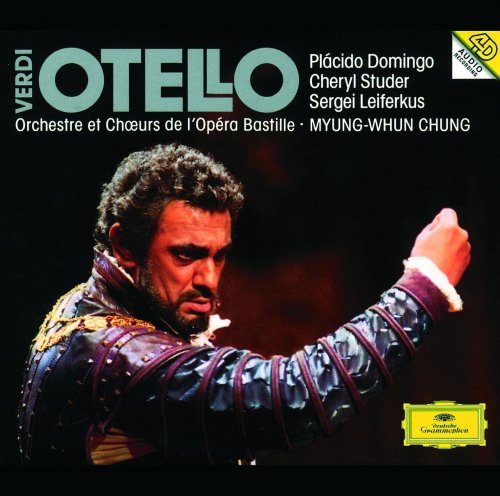
Artist: Plácido Domingo, Orchestre de l'Opéra Bastille, Myung-Whun Chung
Title: Verdi: Otello
Year Of Release: 1994
Label: Deutsche Grammophon
Genre: Classical, Opera
Quality: FLAC (tracks)
Total Time: 02:11:24
Total Size: 541 Mb
WebSite: Album Preview
Tracklist: Title: Verdi: Otello
Year Of Release: 1994
Label: Deutsche Grammophon
Genre: Classical, Opera
Quality: FLAC (tracks)
Total Time: 02:11:24
Total Size: 541 Mb
WebSite: Album Preview
CD 1
Otello / Act 1 (Giuseppe Verdi)
1. Una vela! Una vela! 03:48
2. Esultate! 02:10
3. Roderigo, ebben che pensi?02:30
4. Fuoco di gioia! 02:32
5. Roderigo, beviam! 01:18
6. Inaffia l'ugola! Trinca, tracanna (Brindisi) 03:46
7. Capitano, v'attende la fazione ai baluardi 01:10
8. Abbasso le spade! 04:05
9. Già nella notte densa (Love Duet) 08:53
Otello / Act 2 (Giuseppe Verdi)
10. Non ti crucciar02:22
11. Vanne! la tua meta già vedo00:28
12. Credo in un Dio crudel05:08
13. Ciò m'accora04:11
14. Dove guardi splendono04:12
15. D'un uom che geme sotto il tuo disdegno01:49
16. Se inconscia, contro te, sposo, ho peccato03:03
17. Desdemona rea! 00:37
18. Tu?! Indietro! fuggi! 00:54
19. Ora e per sempre addio 00:59
20. Pace, signor 02:29
21. Era la notte, Cassio dormia02:43
22. Oh! mostruosa colpa! 01:41
23. Si, pel ciel marmoreo giuro! 02:16
CD 2
Otello / Act 3 (Giuseppe Verdi)
1. La vedetta del portoPhilippe Duminy 01:46
2. Continua 01:14
3. Dio ti giocondi, o sposo04:32
4. Esterrefatta fisso05:26
5. Dio! mi potevi scagliar 03:33
6. Cassio è là!00:54
7. Vieni; l'aula è deserta00:44
8. ...e intanto, giacchè non si stanca mai04:02
9. Quest'è il segnale02:19
10. Il Doge ed il Senato salutanoIldebrando d' Arcangelo 02:58
11. Messeri! Il Doge 01:46
12. A terra!...si...nel livido fango01:59
13. Quell' innocente un fremito 04:03
14. Fuggite! 02:11
Otello / Act 4 (Giuseppe Verdi)
15. Era più calmo? 03:55
16. Mia madre aveva una povera ancella00:56
17. "Piangea cantando nell'erma landa..."06:39
18. Ave Maria, piena di grazia04:42
19. Chi e là?03:25
20. Diceste questa sera le vostre preci? 02:37
21. Aprite! Aprite! 02:57
22. "Niun mi tema" 05:42
Performers:
Plácido Domingo (Otello)
Cheryl Studer (Desdemona)
Sergei Leiferkus (Iago)
Ramón Vargas (Cassio)
Michael Schade (Rodrigo)
Ildebrando D'Arcangelo (Lodovico)
Giacomo Prestia (Montano)
Denyce Graves (Emilia)
Orchestre de l'Opéra Bastille
Myung-Whun Chung
For some years now, Domingo has been, on stage, the greatest Otello of our age. On record, though, he has had less success. Leiferkus and Domingo have worked closely together in the theatre; and it shows in scene after scene – nowhere more so than in the crucial sequence in Act 2 where Otello so rapidly ingests Iago's lethal poison. By bringing into the recording studio the feel and experience of a stage performance – meticulous study subtly modified by the improvised charge of the moment – both singers help defy the jinx that so often afflicts Otello on record. The skill of Leiferkus's performance is rooted in voice and technique: clear diction, a very disciplined rhythmic sense and a mastery of all ornament down to the most mordant of mordents.
Above all, he's always there (usually stage right in this recording), steely-voiced, rabbiting on obsessively. We even hear his crucial interventions in the great Act 3 concertato. Domingo is in superb voice; the sound seems golden as never before. Yet at the same time, it's a voice that's being more astutely deployed. To take that cruellest of all challenges to a studiobound Otello, the great Act 3 soliloquy 'Dio! mi potevi', Domingo's performance is now simpler, more inward, more intense. It helps that his voice has darkened, winning back some of its russet baritonal colourings.
Chung's conducting is almost disarmingly vital. Verdi's scoring is more Gallic than Germanic.
The score sounds very brilliant in the hands of the excellent Opéra-Bastille orchestra, and, in Act 4, very beautiful. Maybe Chung is wary of the emotional depths and, occasionally, the rhythmic infrastructure is muddled and unclear. And yet, the freshness is all gain. He's already a master of the big ensemble and the line of an act. Tension rarely slackens. On the rare occasions when it does, the mixing and matching of takes is probably to blame.
Studer's is a carefully drawn portrait of a chaste and sober-suited lady. Perhaps Verdi had a sweeter-voiced singer in mind for this paragon of 'goodness, resignation, and self-sacrifice' (Verdi's words, not Shakespeare's). Studer's oboe tones keep us at a certain distance, yet you'll look in vain for a better Desdemona. What's more, Studer is a singer who can single-mindedly focus the drama afresh, as she does more than once in Act 3. DG's recording is clear and unfussy and satisfyingly varied; Studer, in particular, is much helped by the beautifully open acoustic the engineers provide for the closing act. This is undoubtedly the best Otello on record since the early 1960s. It also happens to be the first time on disc that a great Otello at the height of his powers has been successfully caught in the context of a recording that can itself be generally considered worthy of the event, musically and technically.
Above all, he's always there (usually stage right in this recording), steely-voiced, rabbiting on obsessively. We even hear his crucial interventions in the great Act 3 concertato. Domingo is in superb voice; the sound seems golden as never before. Yet at the same time, it's a voice that's being more astutely deployed. To take that cruellest of all challenges to a studiobound Otello, the great Act 3 soliloquy 'Dio! mi potevi', Domingo's performance is now simpler, more inward, more intense. It helps that his voice has darkened, winning back some of its russet baritonal colourings.
Chung's conducting is almost disarmingly vital. Verdi's scoring is more Gallic than Germanic.
The score sounds very brilliant in the hands of the excellent Opéra-Bastille orchestra, and, in Act 4, very beautiful. Maybe Chung is wary of the emotional depths and, occasionally, the rhythmic infrastructure is muddled and unclear. And yet, the freshness is all gain. He's already a master of the big ensemble and the line of an act. Tension rarely slackens. On the rare occasions when it does, the mixing and matching of takes is probably to blame.
Studer's is a carefully drawn portrait of a chaste and sober-suited lady. Perhaps Verdi had a sweeter-voiced singer in mind for this paragon of 'goodness, resignation, and self-sacrifice' (Verdi's words, not Shakespeare's). Studer's oboe tones keep us at a certain distance, yet you'll look in vain for a better Desdemona. What's more, Studer is a singer who can single-mindedly focus the drama afresh, as she does more than once in Act 3. DG's recording is clear and unfussy and satisfyingly varied; Studer, in particular, is much helped by the beautifully open acoustic the engineers provide for the closing act. This is undoubtedly the best Otello on record since the early 1960s. It also happens to be the first time on disc that a great Otello at the height of his powers has been successfully caught in the context of a recording that can itself be generally considered worthy of the event, musically and technically.
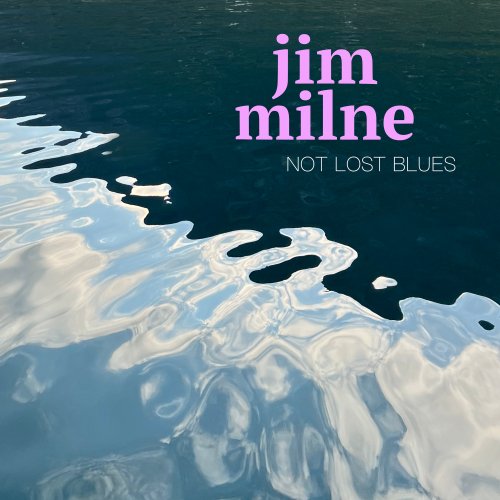
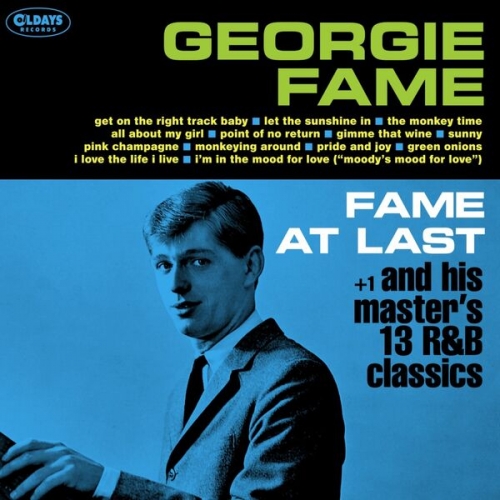
![Fabio Fabor - Orfeo in Paradiso (2025) [Hi-Res] Fabio Fabor - Orfeo in Paradiso (2025) [Hi-Res]](https://img.israbox.com/img/2025-12/25/q71ujyj7y05hb70sb98yrxcyd.jpg)
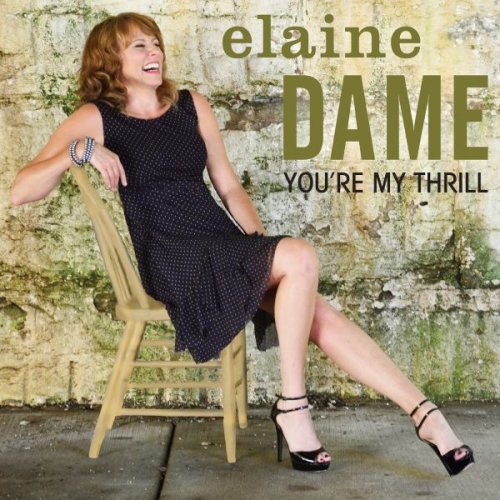
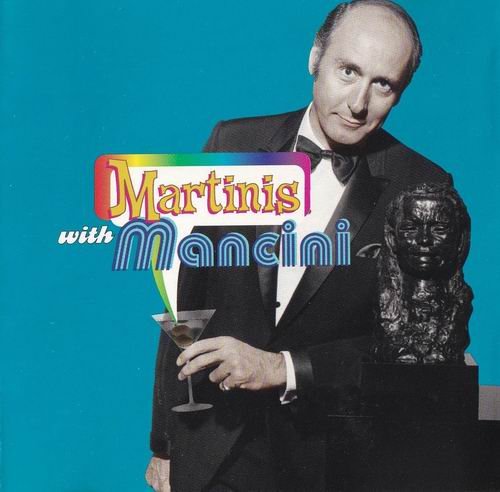
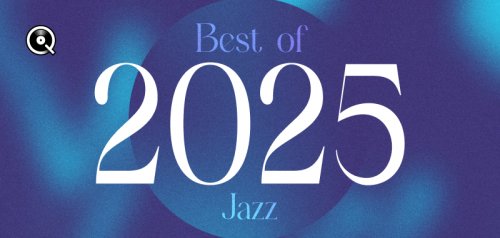

![Lionel Hampton - Jam Session (Remastered) (2022) [Hi-Res] Lionel Hampton - Jam Session (Remastered) (2022) [Hi-Res]](https://www.dibpic.com/uploads/posts/2025-12/1766651558_e3euc7osig6ec_600.jpg)
